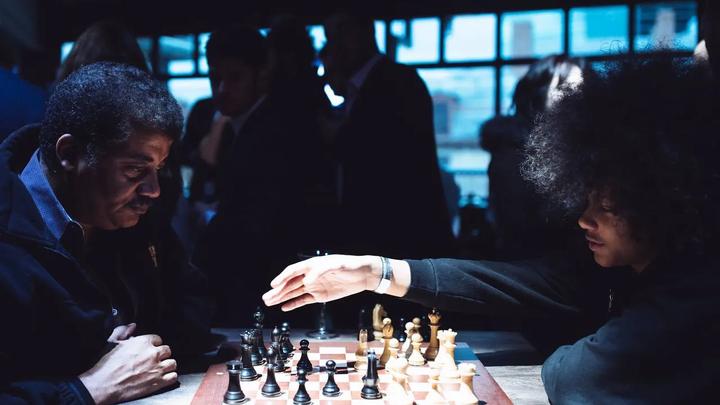It Appears People Are A Little Tired From Playing Chess Online, And Play OTB More

Chapter 1: Returning to Over-the-Board (OTB) Chess
In an age where online chess dominates, people are increasingly yearning for the tactile, personal nature of OTB play. Whether you miss the thrill of in-person competition or simply want to connect on a deeper level, OTB chess brings a social and strategic dynamic that online play lacks. But just as with dating or networking, playing chess OTB requires respecting boundaries and mastering etiquette.
Chapter 2: Why We Miss the Human Element
Playing OTB is not just about the pieces and moves — it’s about body language, human interaction, and the unsaid. Online chess can feel isolated, sometimes leaving us wanting a more profound experience. Chess in person lets us fully absorb our opponent’s intent, emotion, and reactions, reminding us that chess is more than calculation — it’s about people.
Chapter 3: Setting the Stage for an OTB Game
Approaching someone for a game can be as tricky as asking for a date. Be mindful of the setting, and always respect the mood. At clubs, parks, or casual meetups where you see people playing chess, introduce yourself politely and ask: “Would you be interested in a game?” Pay attention to non-verbal cues — if someone seems busy, preoccupied, or uninterested, it’s best to move on. We know from running the World Chess Club Berlin (https://www.worldchessclubberlin.com/) that sometimes it’s intimidating to approach a stranger for a game, but even they say ‘No’, you can introduce yourself and most likely will play them next time.
Chapter 4: Respect Boundaries — Physical and Mental
Chess is a battle of minds, but that doesn’t mean everyone wants to be constantly challenged. If someone declines an invitation to play, accept it gracefully. Persisting after a “no” can make the atmosphere uncomfortable and even ruin someone’s experience. Understanding social boundaries is key in making OTB chess welcoming for everyone.
Chapter 5: Initiating a Game Without Pressure
When playing with someone new, gauge the level of play and pace before the game begins. You might offer to play a friendly game instead of a high-stakes one or suggest playing with a clock or a relaxed pace based on their preference. The goal is mutual enjoyment, not dominance or showing off. Many experienced players appreciate being asked, “Would you prefer a casual game or something more competitive?”
Chapter 6: Handling Wins, Losses, and Emotions
OTB games elicit stronger emotional reactions than online games because you are face-to-face. Whether you win or lose, sportsmanship is paramount. Don’t gloat after a win, and don’t sulk after a loss — offering a handshake or a nod of respect at the end helps foster a positive atmosphere. If the opponent wants to discuss key moments, be open and encouraging; chess is a learning experience, regardless of the outcome.
Chapter 8: Accepting Declines with Grace
Not everyone will want to play with you — and that’s okay. Chess is a game where both parties should feel comfortable, so when someone declines an invitation, there’s no need to push. Smile, thank them, and leave the door open for future games. The beauty of OTB chess is that opportunities to engage will often present themselves again.
Chapter 9: Final Thought — Bringing the Best of OTB and Online Together
We live in a world where both OTB and online chess can coexist. Embracing the best of both worlds — improving online while cherishing the essence of OTB — gives chess its timeless appeal. Whether you’re at a local club, a café, or a tournament, remember that OTB is a shared experience — respect, enjoy, and grow from it.
Click to listen to the World Chess Podcast about this topic (https://podcasters.spotify.com/pod/show/ilya-merenzon4/episodes/World-Chess-Podcast-Going-to-OTB-from-Online--A-Useful-Guide-e2pjhfu). If you are in Berlin, come to the WCCB (https://www.worldchessclubberlin.com/) to play some OTB chess.


